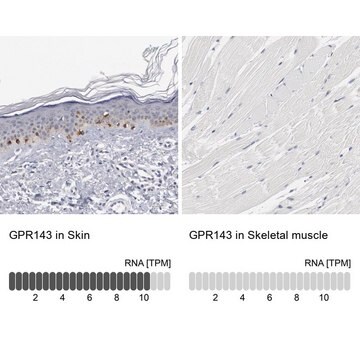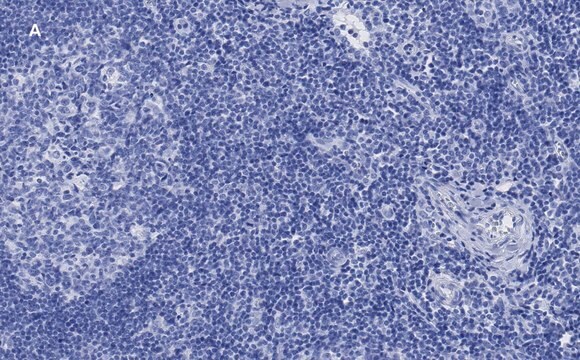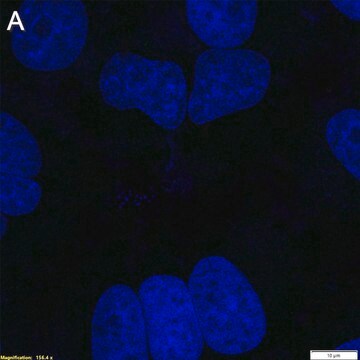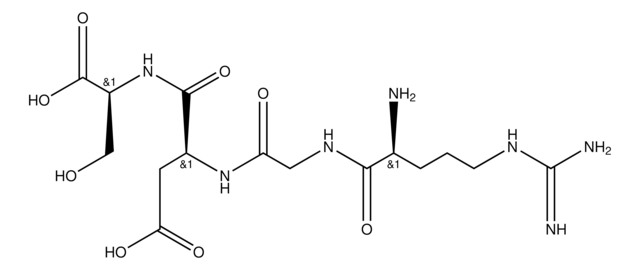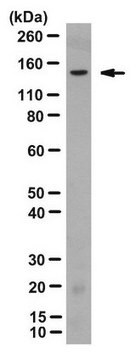ZMS1096
Anti-Sulfotyrosine Antibody, clone Sulfo-1C-A2 ZooMAb® Mouse Monoclonal

recombinant, expressed in HEK 293 cells
About This Item
Produtos recomendados
fonte biológica
mouse
Nível de qualidade
recombinante
expressed in HEK 293 cells
conjugado
unconjugated
forma do anticorpo
purified antibody
tipo de produto de anticorpo
primary antibodies
clone
Sulfo-1C-A2, recombinant monoclonal
linha de produto
ZooMAb® learn more
forma
lyophilized
peso molecular
calculated mol wt 55 kDa
observed mol wt ~55 kDa
purificado por
using protein G
reatividade de espécies
human
embalagem
antibody small pack of 25 μL
características do produto alternativo mais ecológico
Waste Prevention
Designing Safer Chemicals
Design for Energy Efficiency
Learn more about the Principles of Green Chemistry.
validação aprimorada
recombinant expression
Learn more about Antibody Enhanced Validation
sustainability
Greener Alternative Product
técnica(s)
immunocytochemistry: suitable
immunohistochemistry (formalin-fixed, paraffin-embedded sections): suitable
western blot: suitable
Isotipo
IgG2aκ
sequência de epítopo
Unknown
nº de adesão de ID de proteína
nº de adesão UniProt
categoria alternativa mais ecológica
, Aligned
Condições de expedição
ambient
temperatura de armazenamento
2-8°C
modificação pós-traducional do alvo
unmodified
Descrição geral
Especificidade
Imunogênio
Aplicação
Evaluated by Western Blotting with Bovine Fibrinogen.
Western Blotting Analysis (WB): A 1:1,000 dilution of this antibody detected Sulfotyrosine in Bovine Fibrinogen, but not in Fibrinogen treated with Sodium Acetate and Abalone Sulfatase.
Tested applications
Immunohistochemistry (Paraffin) Analysis: A 1:100 dilution from a representative lot detected Sulfotyrosine in human kidney tissue sections.
Immunocytochemistry Analysis: A 1:1,000 dilution from a representative lo detected Sulfotyrosine in Human umbilical vein endothelial cells.
Note: Actual optimal working dilutions must be determined by end user as specimens, and experimental conditions may vary with the end user
Descrição-alvo
forma física
Reconstituição
Armazenamento e estabilidade
Informações legais
Exoneração de responsabilidade
Não está encontrando o produto certo?
Experimente o nosso Ferramenta de seleção de produtos.
Código de classe de armazenamento
11 - Combustible Solids
Classe de risco de água (WGK)
WGK 1
Ponto de fulgor (°F)
Not applicable
Ponto de fulgor (°C)
Not applicable
Certificados de análise (COA)
Busque Certificados de análise (COA) digitando o Número do Lote do produto. Os números de lote e remessa podem ser encontrados no rótulo de um produto após a palavra “Lot” ou “Batch”.
Já possui este produto?
Encontre a documentação dos produtos que você adquiriu recentemente na biblioteca de documentos.
Nossa equipe de cientistas tem experiência em todas as áreas de pesquisa, incluindo Life Sciences, ciência de materiais, síntese química, cromatografia, química analítica e muitas outras.
Entre em contato com a assistência técnica